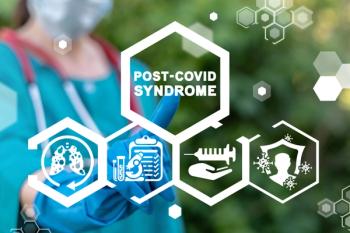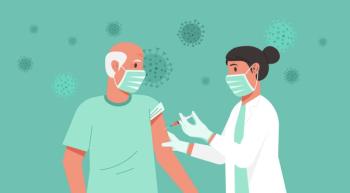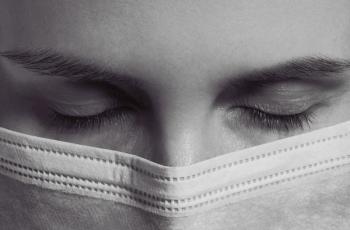
Compulsive Hand Washing in Dermatological Patients in the Era of COVID-19
The skin is the biological mantle that protects us from the influence of many environmental factors, it is also that which is being exposed not only to sunlight but to viruses and bacteria as well.
Media and people’s emotional states have never been as closely linked as they are today. At the same time, there is growing evidence that negative news not only affect our mood, but also the way we perceive ourselves.1,2 Taking into consideration that the skin is the biological mantle that protects us from the influence of many environmental factors, it is also that which is being exposed not only sunlight but viruses and bacteria as well.
In addition to environmental factors, the skin also “reacts” to internal factors such as emotions, negative thoughts, and stress.
Currently, regular hand disinfecting with soap and hot water or alcohol-based hand rub as well as drying the hands with paper towels are recommended to prevent the transmission of coronavirus and the spread of COVID-19. These worldwide guidelines are proposed in combination with measures that restrict social interaction and physical communication.
For many, it is difficult to comprehend the association between compulsive hand washing, the worrying thoughts that are linked with the probability of the transmission of
Patients with a diagnosis of OCD who have received pharmacological and/or psychotherapeutic interventions are better able to perceive and limit recurring negative thoughts, as well as the compulsive behaviors related to hand washing (as a response to reducing their stress levels and the anxiety related with their repetitive thoughts). Unfortunately, for people who have not previously responded positively to pharmacological and/or psychotherapeutic interventions, the recognition and management of both thoughts and repetitive behaviors (compulsive hand washing), constitutes a maladaptive challenge with the emergence of COVID-19. The primary reason for this is prevailing panic because of social media and information that is difficult to absorb or apprehend, while the current isolation is negatively enforcing the primary reason, since any negative emotion during isolation may be more difficult to manage.
For patients with OCD, the avoidance of the intense preoccupation with the online information concerning the COVID-19 constitutes the beginning of managing negative thoughts. Setting aside a specified time of day for news updates from recognized medical websites, with new information about the disease, can reduce anxiety and panic. In addition, specifying certain moments when a person will wash his or her hands (after social contact or for hygiene reasons), as well as the duration of the hand washing behavior, reduces inner tension. As compensation, activities that bring positive emotions (eg, exercise, meditation, reading, telephone/online communication with loved ones) can act as a discharge of tension and allow patients to regain their neurophysiological self-regulation/self-control.
Physical, telephone, and/or online contact with mental health professionals can provide basic training in cognitive modification skills that can improve a patient’s ability to detect and/or correct any interfering negative thoughts, as well as the repetitive behaviors related to hand washing. This also reduces further damage to skin tissue from dermatological symptoms that are overburdened by the unnecessary repeated hand washing. Contacting a dermatologist can also provide relief if the skin has been damaged and the person is tormented by negative self-reports (eg, “because of my anxiety, I damaged my skin”).
Contact with medical/psychiatric experts can help to gradually expose patients to information concerning the current pandemic and activate their neurophysiological mechanisms that are interwoven with their anxiety. The ultimate goal is for the patient to gradually become desensitized, without causing further irritation to the skin. With the proper guidance, both panic and anxiety can be reduced, allowing skin lesions to improve. The holistic purpose of the psychodermatologic intervention is for those who are directly concerned to first realize that their emotions, thoughts, and behaviors are under their control and that they themselves have a greater impact on their mental and physical health than they know.
Disclosures:
References:
1. Fardouly J, Diedrichs PC, Vartanian LR, Halliwell E. Social comparisons on social media: the impact of Facebook on young women’s body image concerns and mood. Body Image. 2015;13:38–45.
2. Tiggemann M, Zaccardo M.
3. Koo J, Lebwohl A. Psychodermatology: the mind and skin connection. Am Fam Phys. 2001;64:1873.
4. Koo JY, Do JH, Lee CS. Psychodermatology. J Am Adad Dermatol. 2000;43:848-853.
5. Kestenbaum T.
6. Sarbu MI, Matei C, Benea V, Georgescu SR. Common dermatoses in patients with obsessive compulsive disorders. J Mind Med Sci. 2015;2:150-158.
7. Gupta MA, Voorhees JJ.
8. Slominski AT, Zmijewski MA, Skobowiat C, et al. Sensing the environment: regulation of local and global homeostasis by the skin neuroendocrine system. Adv Anat Embri Cell Biol. 2012;212:v.
Newsletter
Receive trusted psychiatric news, expert analysis, and clinical insights — subscribe today to support your practice and your patients.







